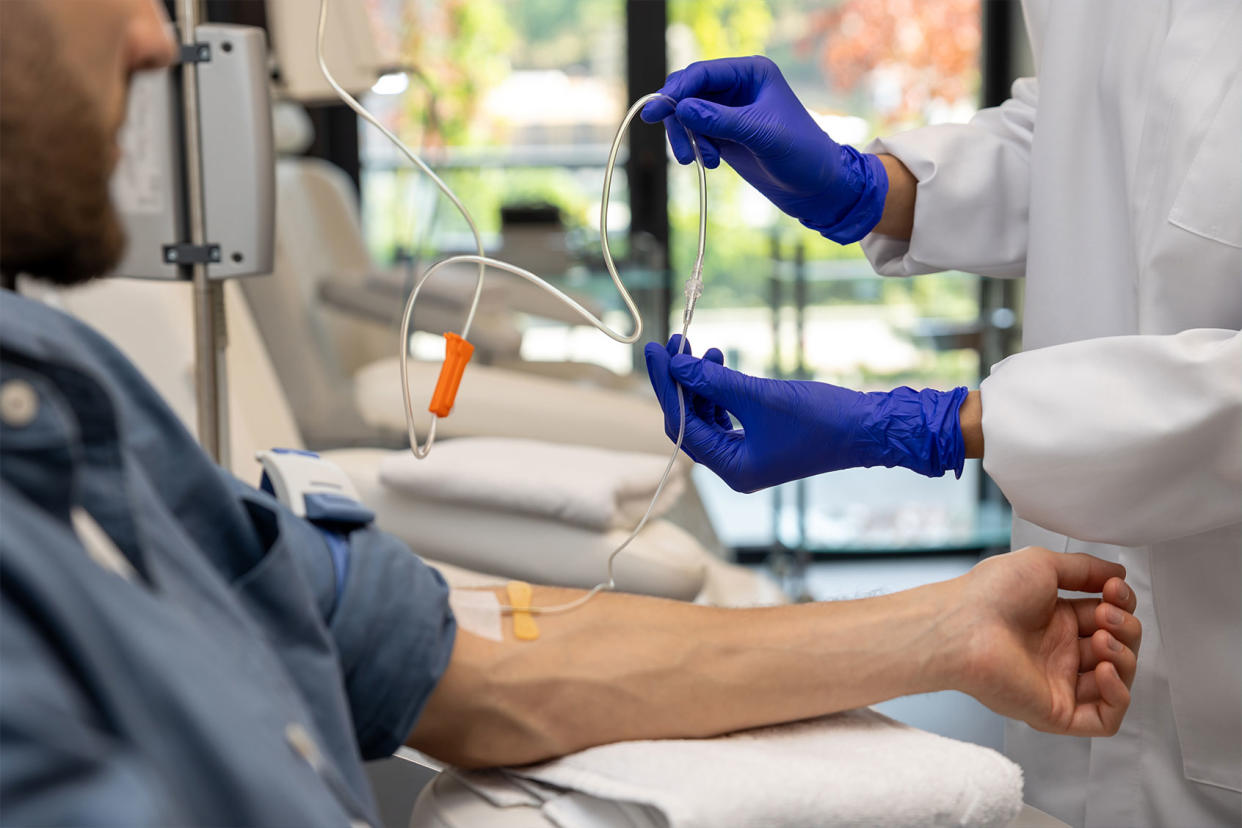Coach's death spotlights pharma's profit wins in chemo drug shortage

- Oops!Something went wrong.Please try again later.
The death of a Milwaukee high school football coach has drawn attention to national drug shortages, as his family speaks out about their inability to access life-saving treatment. Jeff Bolle, 60, died on Dec. 29, 2023 of stage 4 bile duct cancer, seven months after his last chemotherapy treatment with a drug known as cisplatin.
Despite otherwise good health, Bolle was diagnosed in 2022. After undergoing surgery and four rounds of chemotherapy, Bolle's treatments were stopped in May of 2023 when cisplatin became unavailable.
“He was never able to get on cisplatin (again),” his wife, Connie Bolle told Today.com in a recent interview. “His cancer was just continuing to grow, and his bile ducts were getting compromised because the cancer was pushing on them even more. He was really getting so very sick. It was horrible.”
She told the outlet that by late September 2023, doctors realized "there was really nothing else they could do, which was hard to hear ... There was no immunotherapy. There was no other chemotherapy."
According to leading authorities over drug manufacturing in the U.S., the main reason for the national drug shortage is because pharmaceutical companies and drug-makers make decisions about whether to produce and distribute life-saving chemotherapy medicine based on whether or not the company can get rich doing so. Congress could change that at any time — but does not.
As reported by NBC News in May 2023, US Food and Drug Administration Commissioner Dr. Robert Califf said there's not enough profit in producing chemo drugs because many are generic and do not have a patent.
"A number of firms are going either out of business, or they’re having quality problems because of difficulty investing in their technology," Califf told the outlet.
Today.com reports that 15 cancer drugs are currently in shortage, up from 14 last year. The FDA said it can not force a pharmaceutical company to manufacture more of a drug, or force it to sell to customers equally — but that "the public should rest assured the FDA is working closely with numerous manufacturers and others in the supply chain to understand, mitigate and prevent or reduce the impact of intermittent or reduced availability of certain products.”

